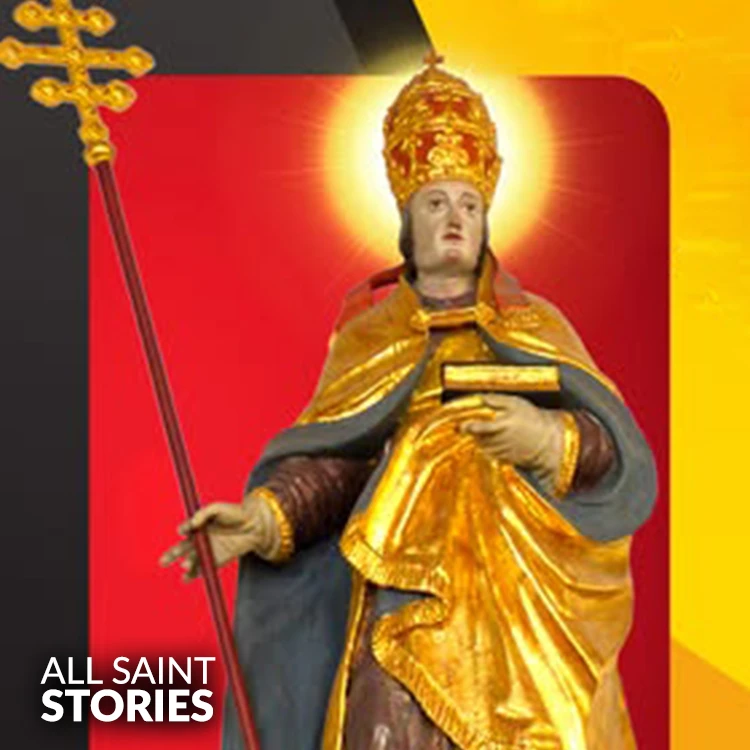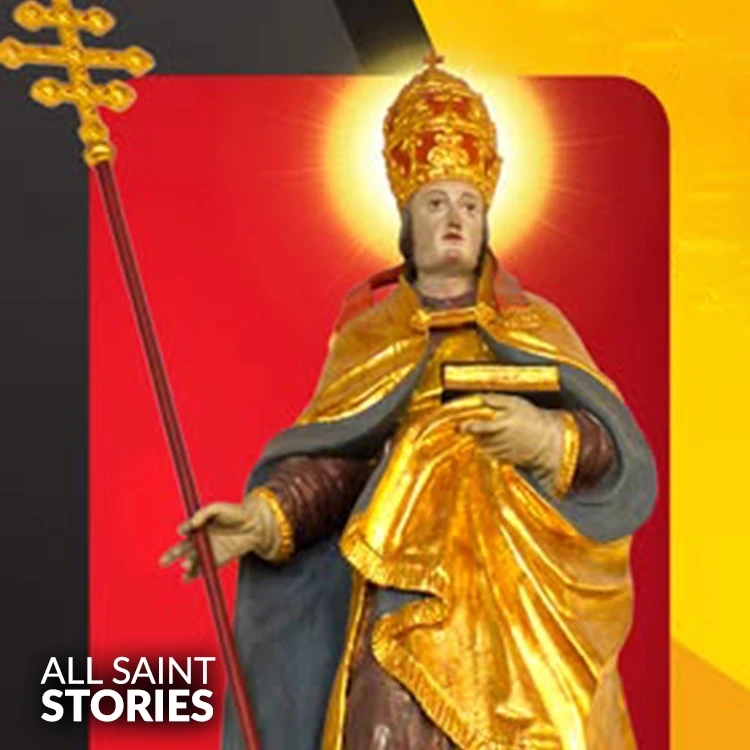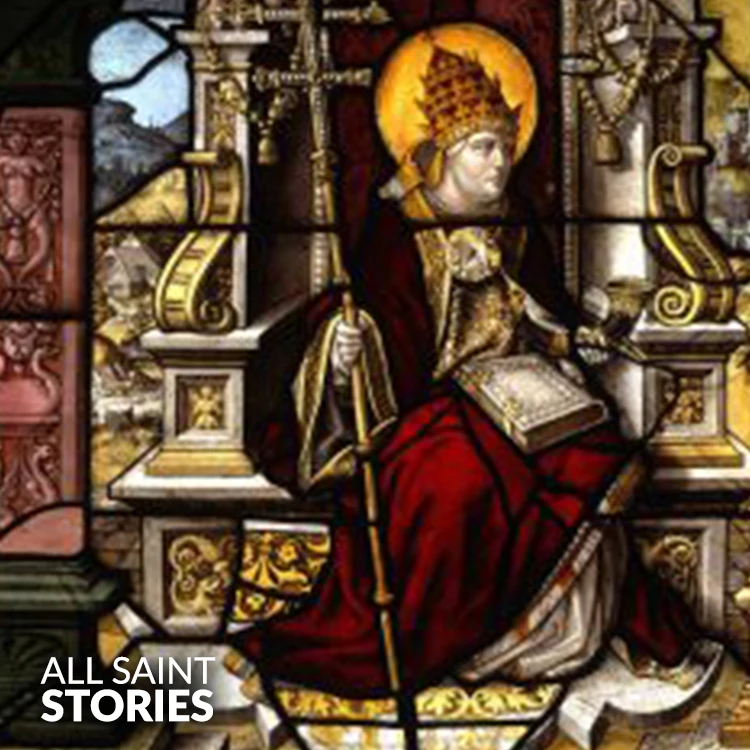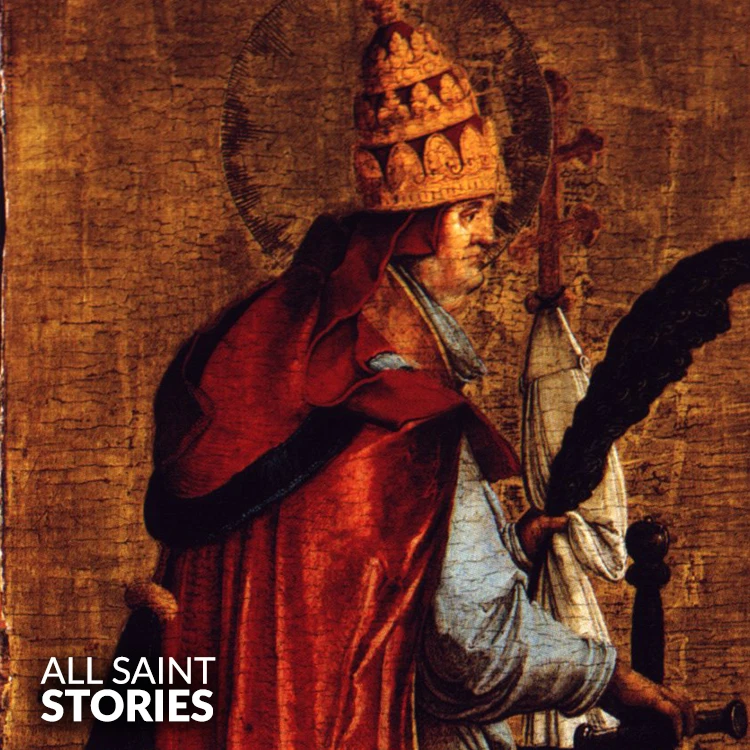"St. Cornelius, faithful servant of God, you led the Church with courage and humility. Intercede for us that we may be strengthened in faith, and be guided by your example of love and devotion. Help us to follow Christ's path, no matter the cost, and to always serve with a pure heart. Amen."
ST. CORNELIUS POPE (MARTYR)
ST. CORNELIUS POPE (MARTYR)

Saint Cornelius, Pope and Martyr, served as the Pope from 251 to 253 AD during a time of great Christian persecution under Emperor Decius. He is remembered for his leadership in reconciling Christians who had renounced their faith and guiding the Church with mercy. Cornelius was exiled and likely martyred in 253 AD. He is honored for his steadfast devotion to Christ and his dedication to the unity of the early Christian community.
Saint Cornelius, Pope and Martyr, became the Bishop of Rome during a turbulent period for early Christianity. Born into a time when Christians faced brutal persecution under the Roman Emperor Decius, Cornelius ascended to the papacy in 251 AD. He led the Church through challenging years when the faith was tested by the emperor’s decree that all citizens must sacrifice to the Roman gods, causing many Christians to be martyred or forced into apostasy. Cornelius' papacy coincided with a great theological and pastoral challenge in the Church, namely the issue of Christians who had renounced their faith during times of intense pressure. This was particularly prominent during the Decian persecution.
Under Emperor Decius' reign, many Christians were persecuted, and some, in fear of death, offered sacrifices to Roman gods, thus renouncing their faith. The controversy over how to treat these "lapsed" Christians (those who had sacrificed to idols or renounced their faith under pressure) divided the early Christian community. Pope Cornelius became a key figure in addressing this issue, advocating for mercy and reconciliation. He believed that lapsed Christians who repented should be restored to full communion with the Church. This view opposed that of Novatian, a prominent theologian, who argued that the lapsed could not be allowed back into the Church, believing their sin was unforgivable. Novatian even attempted to establish his own rival papacy.
Despite these theological divisions, Pope Cornelius remained a figure of unity, promoting the importance of reconciliation. His actions in seeking to restore peace within the Christian community were critical at a time when the Church’s survival was in jeopardy. Pope Cornelius is remembered for his compassion, resilience, and pastoral care in the face of great challenges. He called for moderation and forgiveness, particularly for those who had fallen away during the persecutions but later repented. His vision ultimately prevailed, and the Church continued to expand in the years following his papacy.
Cornelius' papacy, however, was short-lived, as Emperor Decius’ persecution led to his exile. He was sent to the island of Civitavecchia, located north of Rome, where he likely died in 253 AD. His death is considered a martyrdom, and although the precise circumstances of his death are unclear, it is believed that he died as a result of harsh treatment during his exile. His body was later interred in the Catacombs of St. Callixtus in Rome, where many early Christian martyrs were laid to rest.
Saint Cornelius is honored not only as a pope but also as a martyr for his unwavering commitment to Christ during times of extreme persecution. He is a symbol of leadership and compassion, guiding the early Church with a focus on mercy and reconciliation rather than division. His feast day, September 16th, has been celebrated for centuries in the Catholic Church. Cornelius' legacy continues to inspire Christians, particularly in their approach to forgiveness and care for those in spiritual distress.
Video Not Found
The information on this website is compiled from various trusted sources. While we aim for accuracy, some details may be incomplete or contain discrepancies.
If you notice any errors or have additional information about this saint, please use the form on the left to share your suggestions. Your input helps us improve and maintain reliable content for everyone.
All submissions are reviewed carefully, and your personal details will remain confidential. Thank you for contributing to the accuracy and value of this resource.
Credits & Acknowledgments
- Anudina Visudhar (Malayalam) – Life of Saints for Everyday
by Msgr. Thomas Moothedan, M.A., D.D. - Saint Companions for Each Day
by A. J. M. Mausolfe & J. K. Mausolfe - US Catholic (Faith in Real Life) – Informational articles
- Wikipedia – General reference content and images
- Anastpaul.com – Saint images and reflections
- Pravachaka Sabdam (Malayalam) – Saint-related content and insights
We sincerely thank these authors and platforms for their valuable contributions. If we have unintentionally missed any attribution, please notify us, and we will make the correction promptly.
If you have any suggestion about ST. CORNELIUS POPE (MARTYR)
Your suggestion will help improve the information about this saint. Your details will not be disclosed anywhere.
© 2026 Copyright @ www.allsaintstories.com





 English
English
 Italian
Italian
 French
French
 Spanish
Spanish
 Malayalam
Malayalam
 Russian
Russian
 Korean
Korean
 Sinhala
Sinhala
 Japanese
Japanese
 Arabic
Arabic
 Portuguese
Portuguese
 Bantu
Bantu
 Greek
Greek
 German
German
 Dutch
Dutch
 Filipino
Filipino